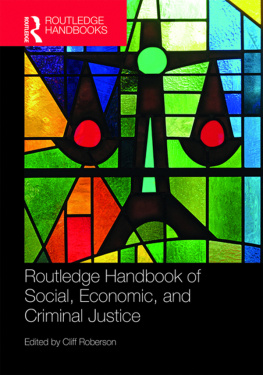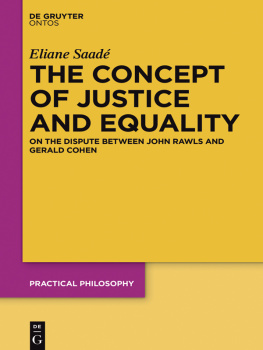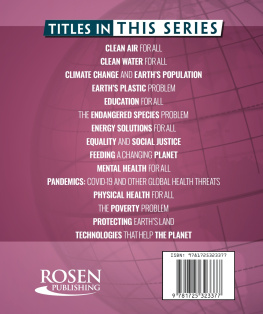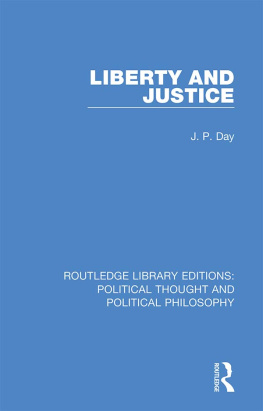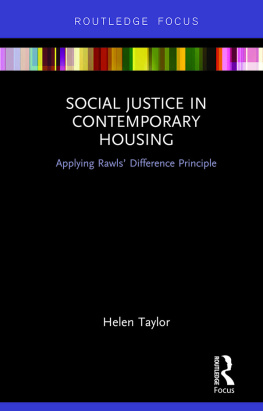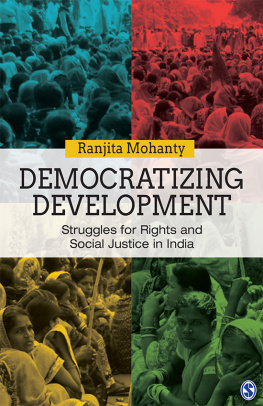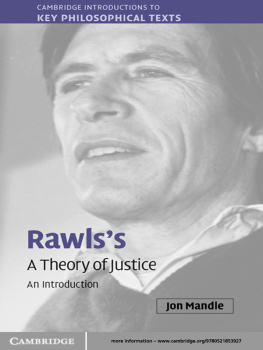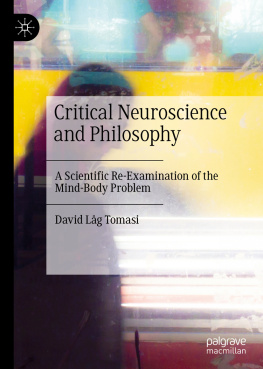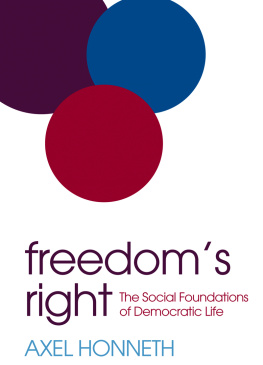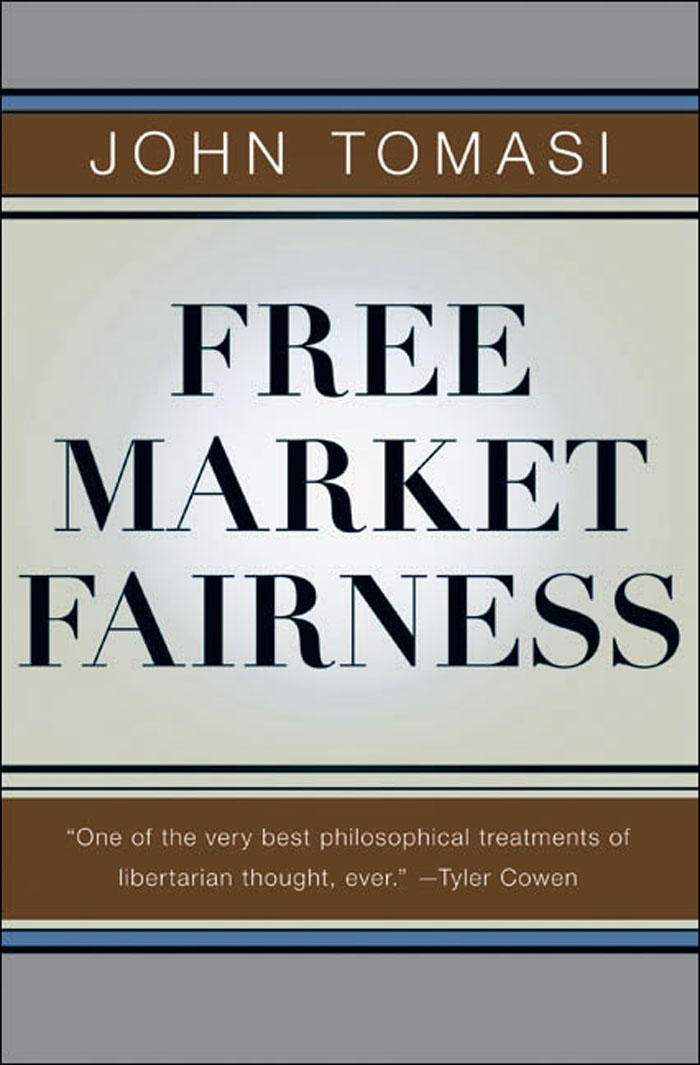Free Market Fairness
Free Market Fairness

JOHN TOMASI
PRINCETON UNIVERSITY PRESS
PRINCETON AND OXFORD
Copyright 2012 by Princeton University Press
Published by Princeton University Press,
41 William Street, Princeton, New Jersey 08540
In the United Kingdom: Princeton University Press,
6 Oxford Street, Woodstock, Oxfordshire OX20 1TW
press.princeton.edu
All Rights Reserved
Fifth printing, and first paperback printing, 2013
Paperback ISBN 978-0-691-15814-3
The Library of Congress has cataloged the cloth edition of this book as follows
Tomasi, John, 1961
Free market fairness / John Tomasi.
p. cm.
Includes bibliographical references and index.
ISBN 978-0-691-14446-7 (hbk.)
1. Liberalism. 2. Equality. 3. Liberty. 4. Capitalism. 5. Free enterprise.
I. Title.
JC574.T657 2012
330.12'2dc23
2011037125
British Library Cataloging-in-Publication Data is available
This book has been composed in Palatino LT Std
Printed on acid-free paper.
Printed in the United States of America
5 7 9 10 8 6
Capitalismus sine stercore tauri.
Contents
Acknowledgments
Many colleagues, students, and friends helped me write this book, including: Sahar Akhtar, Larry Alexander, Richard Arneson, Bas van der Bassan, Anthony Bedami, Zack Beauchamp, Barbara Buckinx, Steve Calabresi, Yvonne Chiu, Tom Christiano, Mark Cladis, Ross Corbett, Dina Egge, Michael Frazer, Bill Galston, Jerry Gaus, Scott Gerber, Alex Gourevitch, Charles Griswold, Leigh Jenco, Kate Johnson, Laura Joyce, Mark Koyama, Chandran Kukathas, Mark LeBar, Hugh Lazenby, Helene Landemore, Brink Lindsey, Loren Lomasky, Roderick Long, Minh Ly, Matthew Lyddon, John McCormick, David McIlroy, Eric Mack, Jim Morone, Emily Nacol, Jan Narveson, Michael Novak, Carlos Ormachea, Carmen Pavel, Philip Pettit, John Phillips, Jeppe von Platz, Dennis Rasmussen, Danny Shapiro, Paul Starr, Annie Stilz, Jason Swadley, Adam Tebble, George Thomas, Scott Turcotte, Chad Van Schoelandt, Debra Satz, Doug Den Uyl, Keven Vallier, Andrew Volmert, Steve Wall, Greg Weiner, Dan Wewers, Will Wilkinson, and Matt Zwolinkski.
Among the many who sent written comments, several merit separate thanks: Samuel Freeman, David Schmidtz, Steve Macedo, Richard Arneson, Jacob Levy, Tom Spragens, Danny Shapiro, and two anonymous reviewers for the Press. I have special debts to Freeman and Schmidtz. From different political perspectives, Sam and Dave encouraged this project from the start. That has long seemed significant to me.
Brown University is a special place to think and write about political philosophy. I thank my colleagues David Estlund, Sharon Krause, Corey Brettschneider, and Charles Larmore for their suggestions and friendship. The postdoctoral fellows in Browns Political Theory Project have been a source of energy and ideas. Keith Hankins and Jason Swadley, PhD candidates at the University of Arizona and Brown respectively, were diligent and creative research assistants. Jason Brennan has been my neighbor in the Political Theory Project throughout the years I wrote this book. I understand the state of our discipline far better because of my daily conversations with Jay. More than colleagues, Jay and I have been intellectual coconspirators: classical liberals who see the need for change. I thank him.
I gave many public presentations on this work. Several stand out: the Manhattan Institutes 2007 Hayek Lecture delivered at the Princeton Club in New York; the 2008 Bradley Lecture at the American Enterprise Institute; a conference in Princeton on Liberal Libertarians organized by Doug Massey; and a 2009 American Political Science Association (APSA) panel in Toronto (chaired by Steve Macedo) on Libertarianism: Can There Be a Moral Defense? I benefited from book workshops at the University of Arizona, at Brown University, at the Institute for Humane Studies Social Change Workshop for graduate students and, especially, from a lively group that discussed a near final version at the Grande Colonial Hotel in La Jolla, California, in January of 2011: Arneson, Schmidtz, Wilkinson, Long, Alexander, Macedo, Shapiro, Wall, LeBar, Stilz, Hankins, and Zwolinski. Thank you.
Ian Malcolm had faith in this unlikely project from the beginning. I thank Rob Tempio for picking it up and carrying it through.
The epigraph is the slogan of a famous study group founded by my former teacher, G. A. Cohenslightly adapted.
Finally, I thank my family, Amy, Peter and Lydia. I dedicate this book to my mother and my father, and their American dream.
Introduction
Some of my best friends are libertarians. But by this I do not mean the usual thing: that these people are my friends even though they are libertarians. And while I do not quite mean the opposite, that would bring us somewhat closer to the truth. The mere fact that someone is a libertarian is enough to dispose me to befriend them. This is because I find libertarianism a profoundly attractive political view.
I use the term libertarianism here in the popular, colloquial sense, meaning that cluster of political views associated with the right-wing of liberal democratic polities. In various ways, and for various reasons, theorists in this broad tradition support the idea of limited government and wide private freedom, most notably in economic affairs. Classical liberals, economic liberals, anarcho-capitalists, right-libertarians, or (as some insist) real liberalsfor now, I use the term libertarian to refer to them all.
For me, the main attraction of this broad libertarian tradition is its emphasis on property rights. All liberals value the civil and political rights of individuals: the right to a fair trial, freedom of expression, political participation, personal autonomy, and so on. But libertarians are distinct in asserting that the economic rights of capitalismthe right to start a business, personally negotiate the terms of ones employment, or decide how to spend (or save) the income one earnsare essential parts of freedom too.
I like this aspect of libertarianism. At its best I see the libertarian defense of property rights as springing from an attractive ideal of political agency. Possessing some particular bundle of material goods, for libertarians, is not nearly so important as possessing those goods because of ones own actions and choices. When we are free, we are aware of ourselves as central causes of the lives we lead. It is not just captains of industry or heroes of Ayn Rand novels who define themselves through their accomplishments in the economic realm. Many ordinary peoplemiddle-class parents, single moms, entry-level workersbecome who they are, and express who they hope to be, by the personal choices they make regarding work, saving, and spending. These are areas in which people earn esteem from others and feel a proper pride for things they themselves do. In economic affairs, libertarians insist, it is not merely the outcome that matters: the process must be considered too. Diminishing personal agency in economic affairsno matter how lofty the social goaldrains vital blood from a persons life. When private economic freedoms are curtailed, libertarians claim, people become in some important sense less free. People in this tradition also emphasize property rights for instrumental reasons: property rights are linked to other basic rights, promote the creation of social wealth, encourage personal responsibility, and mitigate the dangers of concentrated political power. But the libertarian claim that property rights protect freedom has always seemed most important to me.


